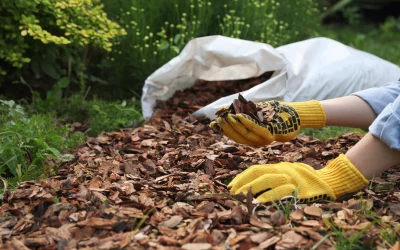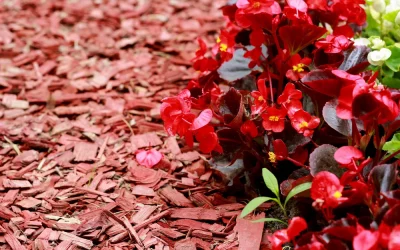Best Mulch for a Vegetable Garden: Organic & Straw Guide
Ever watered your garden in the morning only to find it bone-dry by the afternoon? Or noticed weeds popping up faster than your plants? The right mulch can solve both problems and more! But how do you know which is the right one?
This guide breaks down the best types of mulch for vegetable garden setups, especially if you’re working with raised beds or trying to grow healthier produce with less effort. From rich organic blends to humble straws, you’ll learn what works best and why.
Top Mulch Picks for a Healthier, Easier Vegetable Garden
Mulching helps retain moisture, suppress weeds, and improve soil over time. But not all options work the same. Here’s how to pick the right mulch for raised beds or in-ground vegetable plots:
1) Straw
Light, breathable, and quick to break down—mulching your garden with straw is a go-to method for many gardeners. Straw adds organic matter to the soil as it decomposes and doesn’t compact easily, which keeps airflow steady. It also acts as a buffer between your veggies and the soil, reducing rot.
2) Shredded Leaves
If you’ve got trees, this one’s free. Shredded leaves are an excellent organic mulch for vegetable garden use. They improve soil texture, promote worm activity, and help hold moisture during hot spells. Just make sure they’re chopped up since whole leaves can mat down and block water.
3) Grass Clippings
Fresh clippings add nitrogen, which helps leafy greens thrive. But it’s best to apply them in thin layers to avoid clumping. Grass is an easy straw garden mulch alternative if you want quick results and you mow regularly.
4) Pine Needles
These are great for crops like potatoes and carrots that like slightly acidic soil. Needles create a loose cover, making them good for airflow and water flow in the vegetable garden mulching process. Just be aware that pH changes over time may affect plant growth.
5) Hardwood Mulch
For longer-lasting coverage, hardwood adds structure and slows weed growth. It’s not fast to break down, but in the right layer, hardwood mulch in vegetable garden beds can benefit from better moisture retention and reduced erosion.
When It’s Worth Getting Expert Help
A DIY approach works for many, but big gardens or tricky soil conditions can benefit from residential mulching services. Professionals know how much mulch you’ll need and which type suits your layout, sun exposure, and drainage. They also deliver and spread it quickly, saving you a full weekend of hauling, dumping, and raking.
You’ll also get advice tailored to your soil. For example, if you’re dealing with dense terrain, mulch for clay soil needs to be lighter and fluffier to encourage airflow. A pro can help avoid costly missteps and make sure your garden’s base layer supports what you’re trying to grow.
Smart Mulching Starts with Bella Mulch
At Bella Mulch, we make it easy to give your garden what it needs. We deliver a large mulch variety right to your yard along the East Coast from Brunswick, GA, to Wilmington, NC.
Whether you’re changing mulch for the season or deciding between natural options, we’ve got you covered. We’ll walk you through all your doubts, like cedar mulch pros and cons, so you can make the best call for your garden. Ready to mulch smarter? Contact us to get started.




